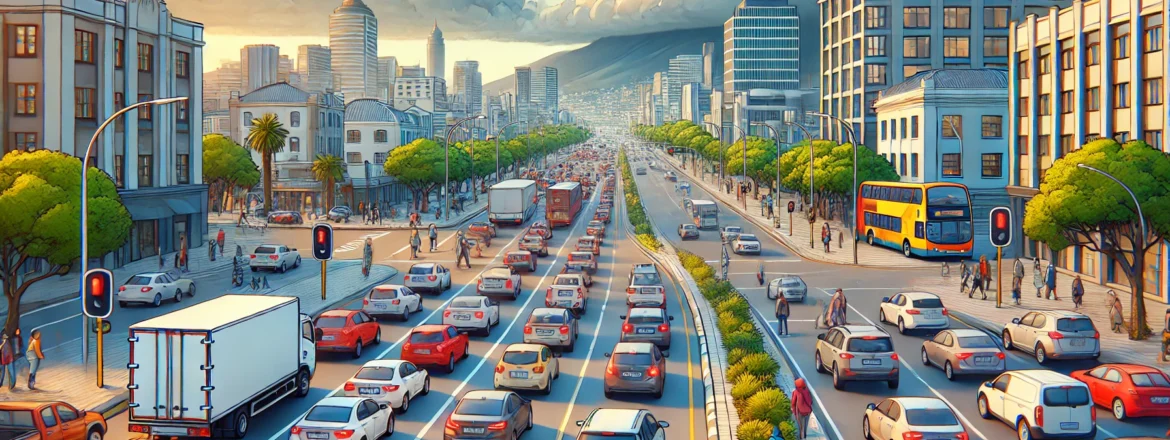Navigating Cape Town during rush hour can be a daunting task for both new and experienced drivers. With busy streets, impatient drivers, and peak-time congestion, it’s essential to have strategies in place for a safer and smoother journey. This guide offers practical advice for handling Cape Town’s rush hour, whether you’re attending a driving school Cape Town session or driving on your own.
Table of Contents
- Understanding Rush Hour in Cape Town
- Essential Tips for Driving in Rush Hour
- The Role of Defensive Driving
- Why a Driving School Can Help
- FAQs
Understanding Rush Hour in Cape Town
Cape Town’s rush hour typically occurs between 7:00 AM – 9:00 AM and 4:30 PM – 6:30 PM on weekdays. During these times:
- Main Routes: Roads like the N1, N2, and M3 experience heavy traffic.
- High Congestion Areas: City Bowl, Century City, and Southern Suburbs are traffic hotspots.
- Peak Activity: Many commuters are traveling to and from work or school.
Knowing when and where traffic builds up can help you plan alternative routes and save time.
Essential Tips for Driving in Rush Hour
1. Plan Your Route Ahead
Use navigation apps like Google Maps or Waze to check traffic updates. These tools can suggest faster routes and alert you to accidents or road closures.
2. Avoid Distractions
Stay focused on the road by silencing your phone and limiting conversations. Distractions increase the risk of accidents, especially during high traffic.
3. Maintain Safe Following Distances
Leave enough space between your car and the vehicle ahead. This gives you more time to react if the traffic suddenly slows or stops.
4. Stay Calm and Patient
Rush hour can be frustrating, but aggressive driving worsens the situation. Practice patience and avoid honking unnecessarily.
5. Check Your Car’s Readiness
Ensure your vehicle is in good condition:
- Check tire pressure.
- Keep fuel levels above half a tank.
- Test brakes and lights before setting off.
The Role of Defensive Driving
Defensive driving techniques are invaluable during rush hour. They help you anticipate potential dangers and make better decisions on the road.
- Stay Alert: Watch for sudden lane changes or vehicles merging unexpectedly.
- Signal Early: Use your indicators to communicate your intentions to other drivers.
- Be Aware of Pedestrians and Cyclists: Cape Town’s streets are busy with all types of road users.
Attending a defensive driving course can significantly improve your skills in these areas.
Why a Driving School Can Help
If you’re struggling with rush-hour traffic, enrolling in a driving school Cape Town offers tailored training to build your confidence.
- Personalized Training: Lessons focus on handling peak-hour traffic.
- K53 Techniques: Learn how to master driving safely according to South Africa’s K53 standards.
- Manual or Automatic Options: Choose what suits your needs best.
A manual driving school can help you navigate busy streets while improving your clutch control. Alternatively, opt for manual auto lessons if you’re transitioning to manual vehicles.
FAQs
1. What is the best time to drive in Cape Town to avoid traffic?
Driving before 7:00 AM or after 6:30 PM can help you avoid rush hour.
2. How can I prepare for rush-hour traffic as a new driver?
Practice driving during less busy times and gradually progress to peak hours. Attending a driving school near me can also help.
3. Are there specific routes to avoid during rush hour?
Yes, try to avoid the N1, N2, and M3 during peak times. Use alternative roads like R300 or M5 if possible.
4. Can a driving school help with rush-hour driving?
Absolutely. Driving schools offer lessons tailored to improve your skills in handling high-traffic scenarios.
Conclusion
Driving in Cape Town’s rush hour requires preparation, patience, and practice. Whether you’re an experienced driver or new to the road, these tips can help you stay safe and confident. For personalized guidance, consider enrolling in a driving school Cape Town or booking drivers training near me to master these challenges effectively.


